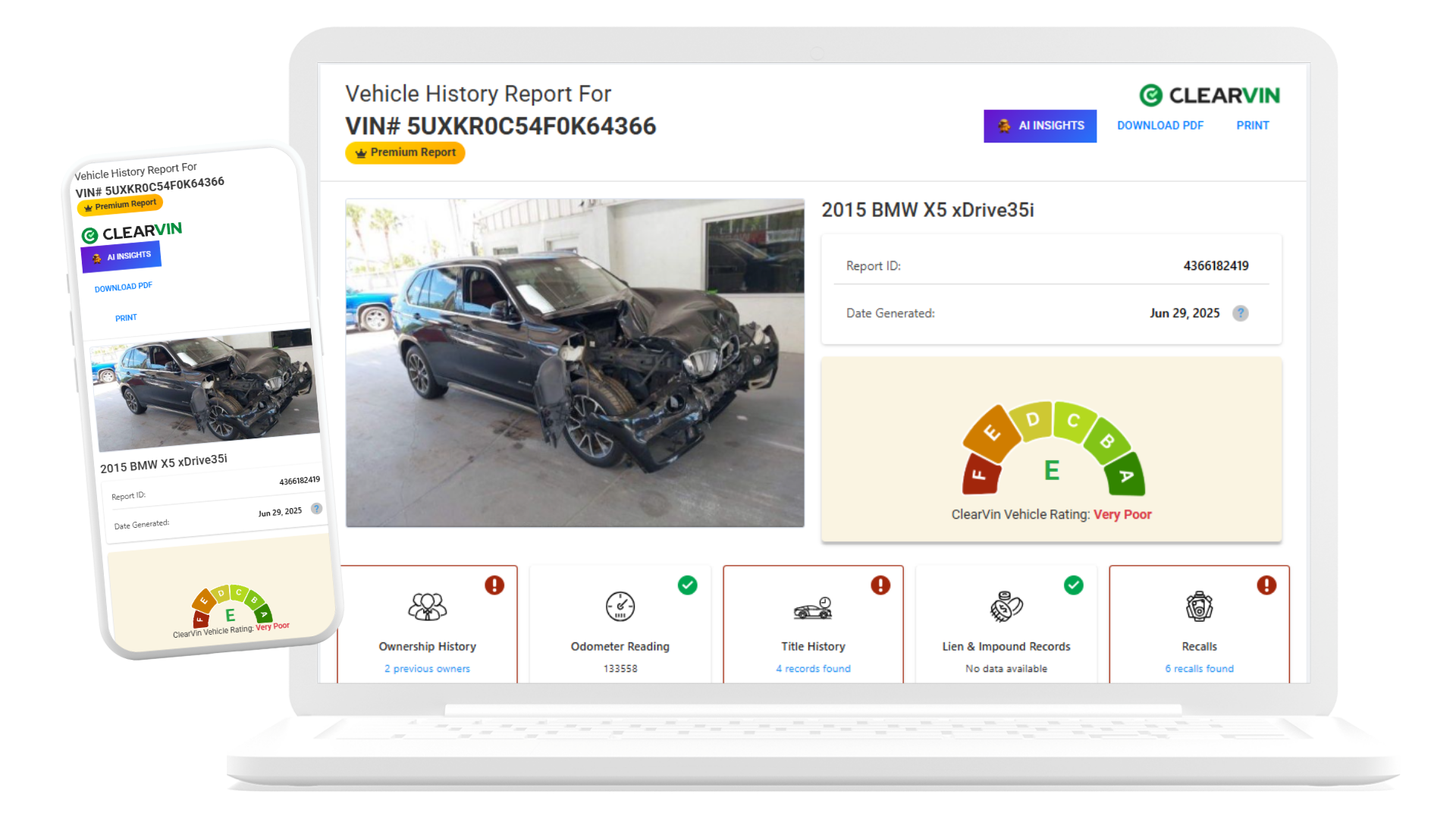
Check VIN Number Texas – Free Lookup, NMVTIS Data & Inspection Guide
If you’re planning to buy a used car, the first thing you should do is check VIN number Texas-wide before making any payment.
A simple VIN lookup can uncover hidden issues such as accident history, title problems, odometer fraud, flood damage, or even if the vehicle has been reported stolen.
In this guide, you’ll learn exactly how to perform a Texas VIN check, where to find reliable free tools, when to use NMVTIS-approved reports, and how advanced platforms like VINspectorAI can analyze risks using AI-powered insights.
What Is a VIN and Why Checking It Matters
A VIN (Vehicle Identification Number) is a unique 17-character alphanumeric code assigned to every vehicle at the factory.
It acts as the car’s fingerprint — no two vehicles share the same VIN.
This number reveals key information such as:
the year and country of manufacture
the make, model, and engine type
safety equipment and trim level
factory recalls or production details
In Texas, checking your VIN is an essential step before registration, sale, or insurance.
It verifies the car’s identity and ensures you’re not buying a vehicle with a hidden or fraudulent past.
Where to Find the VIN Number on a Car
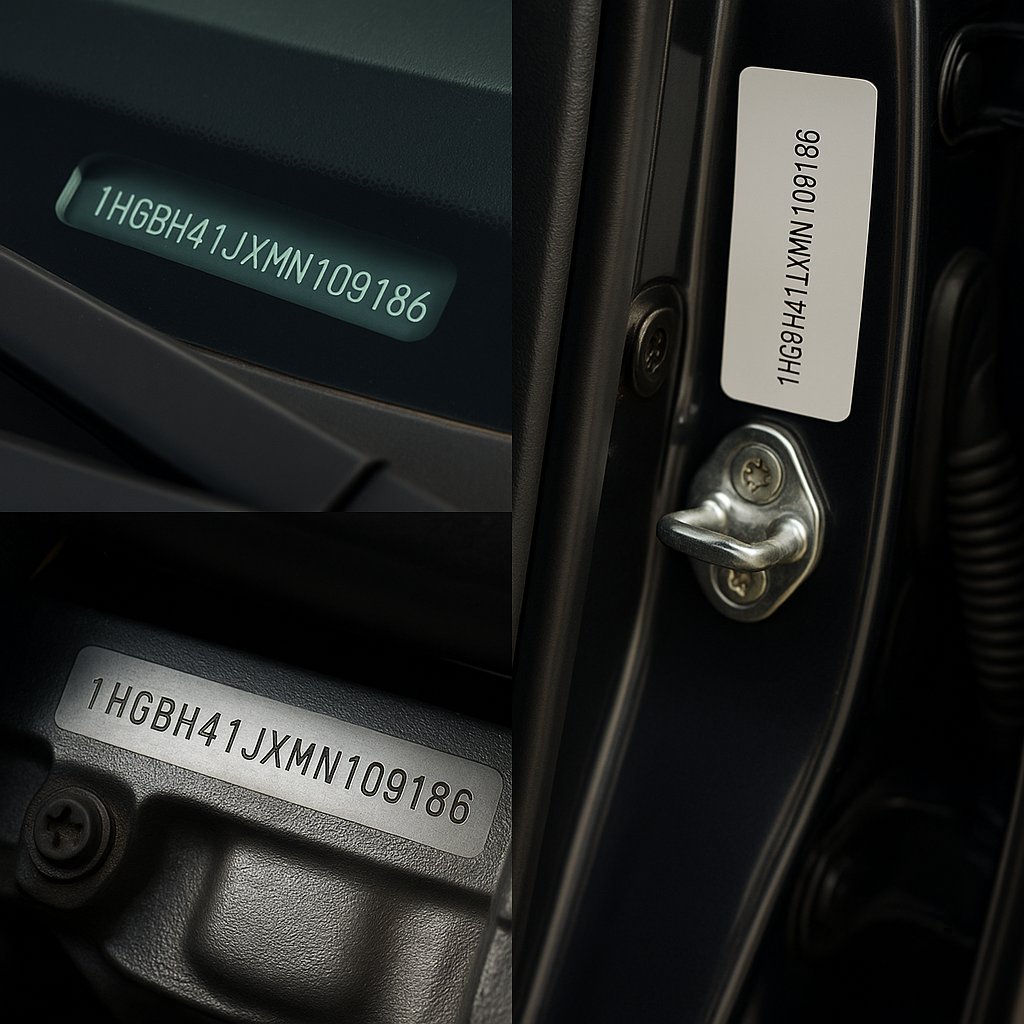
Before performing a VIN check, make sure you locate the correct VIN on your vehicle.
Common locations include:
Dashboard: visible through the windshield on the driver’s side
Driver’s door frame: printed on a metal plate or sticker
Engine block: engraved near the front or side of the engine
Vehicle frame or chassis: especially for trucks and SUVs
Official documents: title, registration, insurance, and inspection report
Always verify that the VIN matches across all these locations.
Any discrepancy could indicate tampering, cloning, or an illegal rebuild.
Free Ways to Check a VIN Number in Texas
If you want to start with a quick free check, you can use trusted national databases that provide basic vehicle history.
These tools are perfect for an initial screening before ordering a full NMVTIS report.
NICB VINCheck (Free Stolen or Total Loss Lookup)
The National Insurance Crime Bureau (NICB) offers a free VIN search tool that reveals:
if a vehicle was reported stolen and not recovered
if it was declared a total loss by an insurance company
Pros:
Completely free, instant results
Official insurance industry data
Covers all U.S. states, including Texas
Cons:
Doesn’t show detailed accident history, mileage, or ownership records
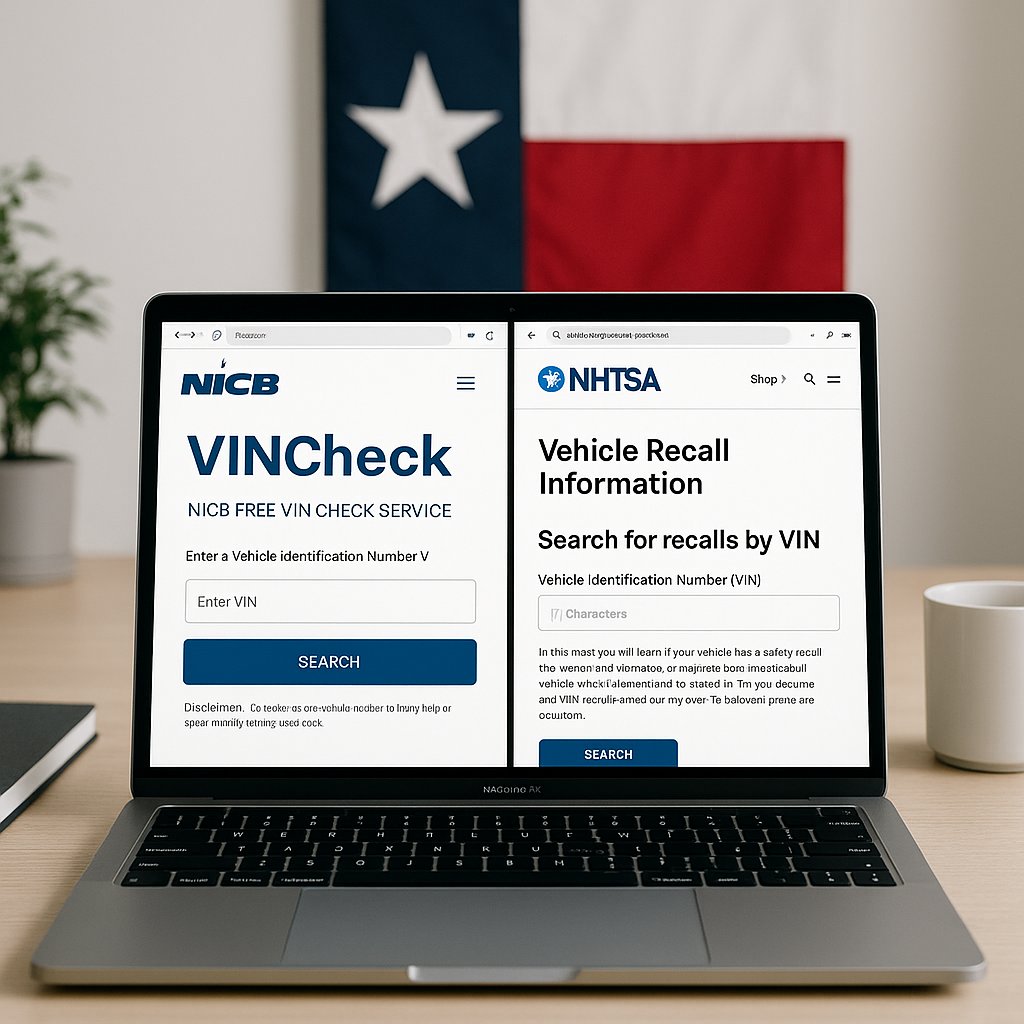
NHTSA VIN Decoder (Factory Info & Recalls)
The National Highway Traffic Safety Administration (NHTSA) lets you check your VIN for:
Open recalls issued by manufacturers
Safety defects or mandatory repairs
Vehicle specifications such as airbags, drivetrain, and build type
Pros:
Official U.S. government source
Reliable data directly from manufacturers
Cons:
Doesn’t show title history, accidents, or state registration details
When Free VIN Checks Aren’t Enough
Free VIN tools are helpful for quick screening, but they only tell part of the story.
They don’t include critical data such as multi-state title transfers, odometer rollbacks, or hidden damage from salvage auctions.
That’s where NMVTIS-powered VIN reports — like those provided by VINspectorAI — make all the difference.
A full Texas VIN report reveals what free tools can’t: the vehicle’s complete title history, accident timeline, and verified mileage records.
It’s the only way to make sure you’re not buying a car with a washed title or hidden damage.
Free vs. Full Texas VIN Check Comparison
Feature | Free VIN Check (NICB/NHTSA) | Full VIN Report (VINspectorAI) |
|---|---|---|
Title History | ❌ Only shows total-loss or theft info | ✅ Complete multi-state title records (Clean, Salvage, Rebuilt, Flood, etc.) |
Accident Records | ❌ Not included | ✅ Full accident and insurance claim data |
Odometer Readings | ❌ Not available | ✅ Verified mileage history to detect rollback |
Flood / Fire / Hail Damage | ❌ Not included | ✅ Reported from NMVTIS and insurance databases |
Usage Type (Rental, Fleet, Taxi) | ❌ Not shown | ✅ Included with VINspectorAI |
Auction or Salvage History | ❌ Not included | ✅ Detects if vehicle was listed at auctions or rebuilt |
AI Risk Analysis | ❌ No risk scoring | ✅ AI-powered fraud and pattern detection |
Official NMVTIS Source | ⚠️ Partial federal data | ✅ 100% NMVTIS + NICB + NHTSA verified |
Price | ✅ Free | 💲 From $19.99 – full access |
Paid Options – Full Vehicle History with NMVTIS Data
Free tools are great for a quick glance, but they don’t show the full picture.
For a complete Texas VIN check, you need a NMVTIS-approved report — the only federal system that collects vehicle title data from all 50 states, insurance companies, and auto recyclers.
NMVTIS (National Motor Vehicle Title Information System) reports are mandatory for official vehicle history verification in the U.S.
A full NMVTIS VIN report includes:
Title history across multiple states (Clean, Salvage, Rebuilt, Flood, Junk, etc.)
Accident and insurance claims
Odometer readings and rollback detection
Flood, fire, or hail damage records
Usage type (personal, fleet, rental, taxi, government)
Salvage auction or rebuild history
Why VINspectorAI Is the Smartest Choice for Texas VIN Checks
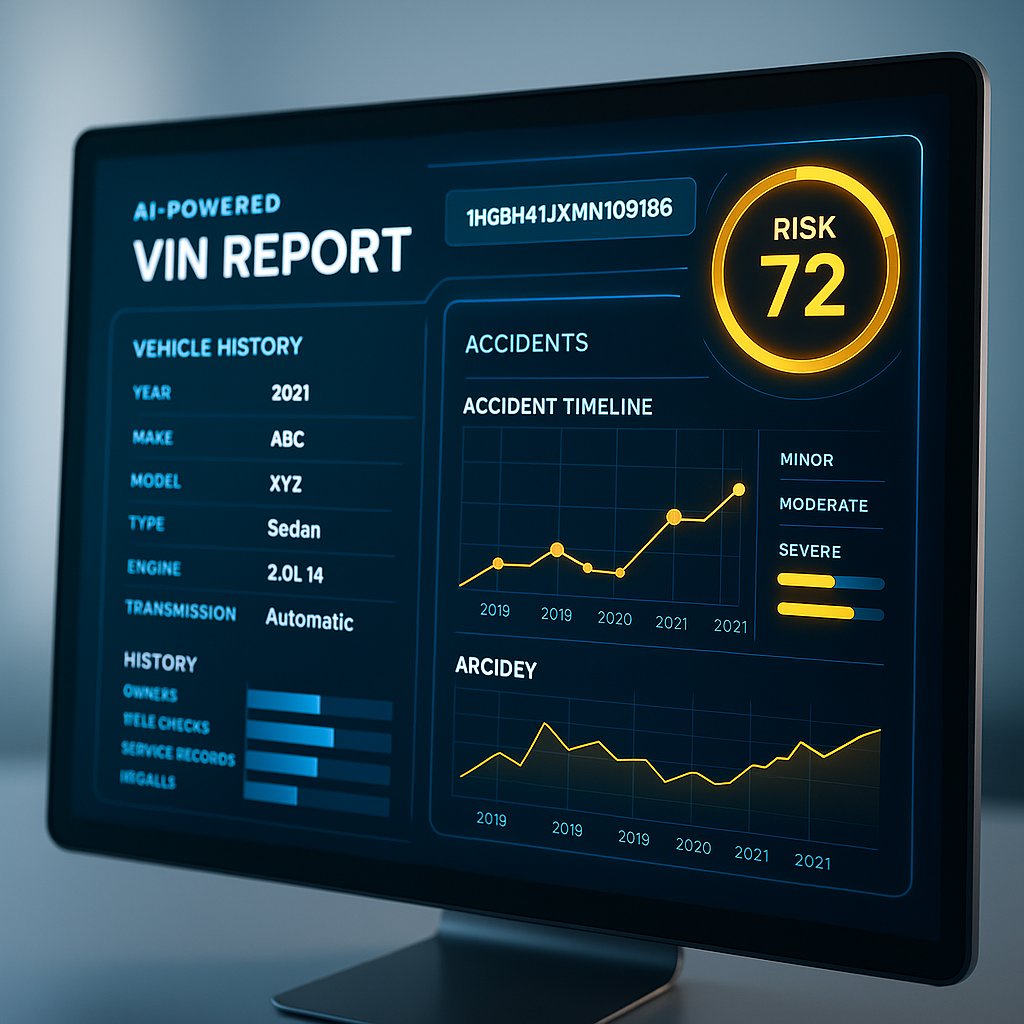
Most VIN check websites only show raw data — dates, numbers, and codes that are hard to interpret.
But when you’re about to spend thousands of dollars on a car, you don’t need just data — you need answers you can trust.
That’s exactly what VINspectorAI delivers.
It’s more than a report — it’s a complete AI-powered risk analysis tool built for car buyers in the U.S. who want to avoid scams, hidden damage, or financial losses.
Here’s why you should use VINspectorAI instead of generic VIN check sites like Carfax or AutoCheck:
Deeper and Smarter Analysis (AI-Powered)
VINspectorAI doesn’t just copy NMVTIS data — it interprets it.
Our AI system cross-checks information from NMVTIS, NICB, NHTSA, and state DMV databases, identifying hidden patterns that other tools miss.
Example:
If a car changed ownership four times in one year, had mileage jumps, and a previous flood record — VINspectorAI flags it instantly as “High Risk” even if other reports show a clean title.
Result: You avoid buying cars that look good on paper but are financial traps in reality.
Trusted Official Data Sources
Unlike “free VIN websites” that scrape data or show partial reports, VINspectorAI uses only verified, federal sources:
NMVTIS (National Motor Vehicle Title Information System)
NICB (Insurance Bureau Theft & Total Loss Records)
NHTSA (Recalls & Factory Safety Information)
This ensures every report you get is accurate, legal, and recognized by state agencies.
You can even present a VINspectorAI report at a Texas DMV office when registering or applying for a bonded title.
Designed for Real Buyers, Not Data Experts
VINspectorAI is built for real car shoppers, not mechanics or dealers only.
Every report is presented in an interactive, visual dashboard that includes:
accident timeline
title history map
flood or fire indicators
AI risk score (0–100)
color-coded insights
Even if you’re not a car expert, you’ll instantly understand whether a vehicle is safe to buy or should be avoided.
More Affordable Than Carfax or AutoCheck
Carfax reports can cost $44–$69 per VIN.
VINspectorAI provides the same official data plus AI-driven analysis for a fraction of that — starting at just $19.99 per report, or bundled plans for dealers and fleet owners.
No subscriptions, no hidden fees.
You pay once and access your report instantly.
That’s real value — not overpriced branding.
Tailored for Texas Buyers
VINspectorAI is optimized for Texas-specific vehicle data.
It detects title transfers from other states to expose title washing, includes VTR-68A VIN inspection guidance, and flags vehicles that failed emissions or flood checks in counties like Harris, Dallas, Travis, or Bexar.
No other platform provides this level of localized accuracy for Texas car buyers.
Built-In Dealer & Fleet Tools
If you manage a dealership, rental, or auction business, VINspectorAI lets you run multiple VIN checks at once, export results to Excel or CRM, monitor risk scores for each car, and generate AI summaries for listings — ideal for automotive SEO and social media descriptions.
VINspectorAI is not just for consumers — it’s a professional-grade solution trusted by independent car dealers and fleet operators across the U.S.
Real Transparency, Real Protection
With VINspectorAI, what you see is what you get.
All data sources are official and disclosed. The AI doesn’t make hidden assumptions — you can see exactly why a vehicle is marked as risky.
We don’t resell your VINs, limit access, or store sensitive data.
Your reports remain private, secure, and permanently accessible.
When to Get a VIN Inspection Instead of a Check
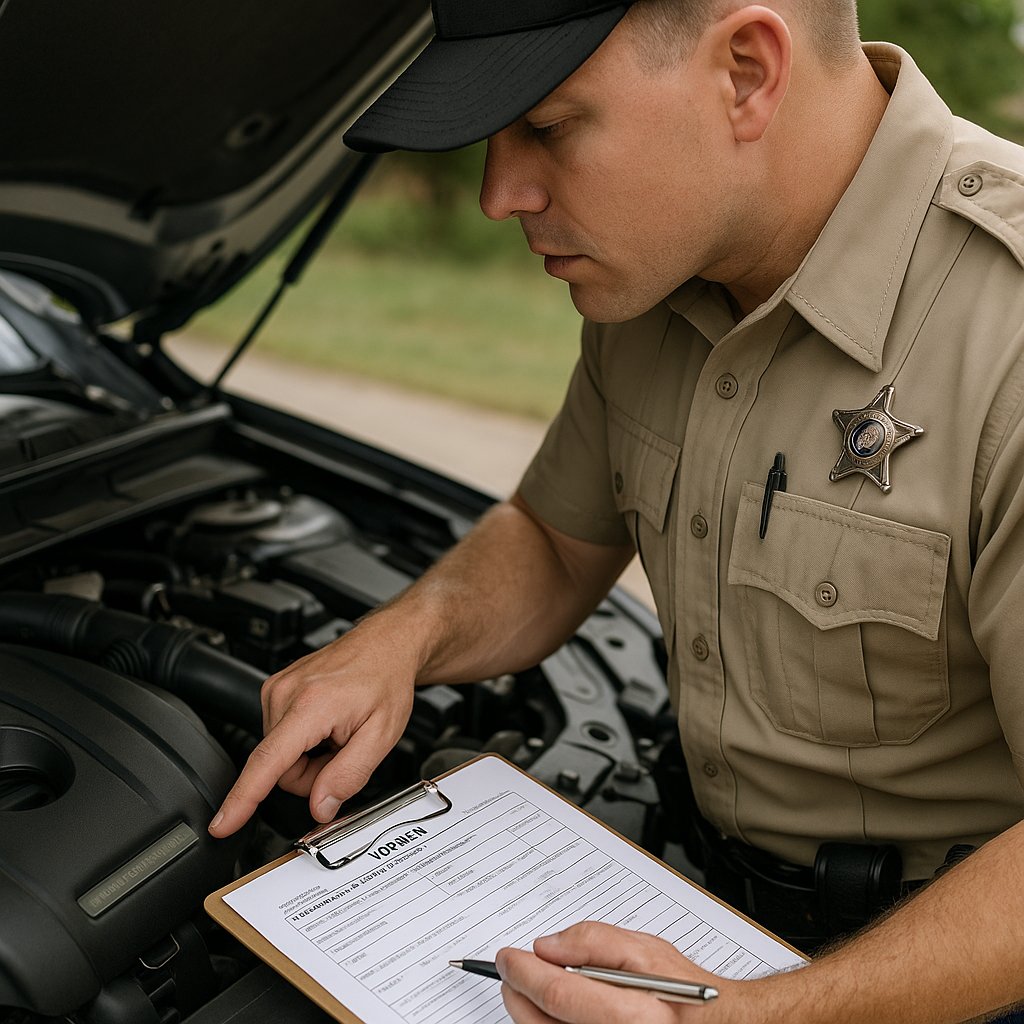
Sometimes, a digital VIN check isn’t enough.
If your car was imported, rebuilt, or has a damaged VIN plate, you’ll need an official VIN inspection in Texas.
This is done through the VTR-68A Law Enforcement VIN Inspection Form, performed by DPS or sheriff’s offices.
For a complete guide to Texas VIN checks, including forms like VTR-68A and NMVTIS reports, visit our main Texas VIN Check guide.
Official Resources for Texas VIN Verification
TxDMV Forms: https://www.txdmv.gov/forms
NMVTIS Official Site: https://vehiclehistory.bja.ojp.gov/
NICB VINCheck Tool: https://www.nicb.org/vincheck
NHTSA Recall Lookup: https://www.nhtsa.gov/recalls
Conclusion
Checking a VIN number in Texas is one of the most important steps before buying a used car.
While free options like NICB or NHTSA can give you a quick overview, only a full NMVTIS-powered VIN report reveals the complete history and hidden risks.
With VINspectorAI, you can check any VIN in seconds, analyze it with AI-powered insights, and make smarter, safer buying decisions.
Whether you’re an individual buyer or a dealer, VINspectorAI ensures every car you purchase in Texas comes with full transparency and confidence.
Frequently Asked Questions
Get answers to common questions about Check VIN Number Texas – Free Lookup, NMVTIS Data & Inspection Guide
Uncover Complete Vehicle History Reports
Discover critical vehicle information before you buy. Our VIN decoder reveals accident records, title status, recalls, and service history to help you make informed decisions.
Related Articles
Explore Tags
More from Car Buying Guide

Discover how to perform a Texas VIN check using free lookup tools, official VIN inspections (VTR-68A), NMVTIS data, and AI-powered reports from | VINspectorAI.
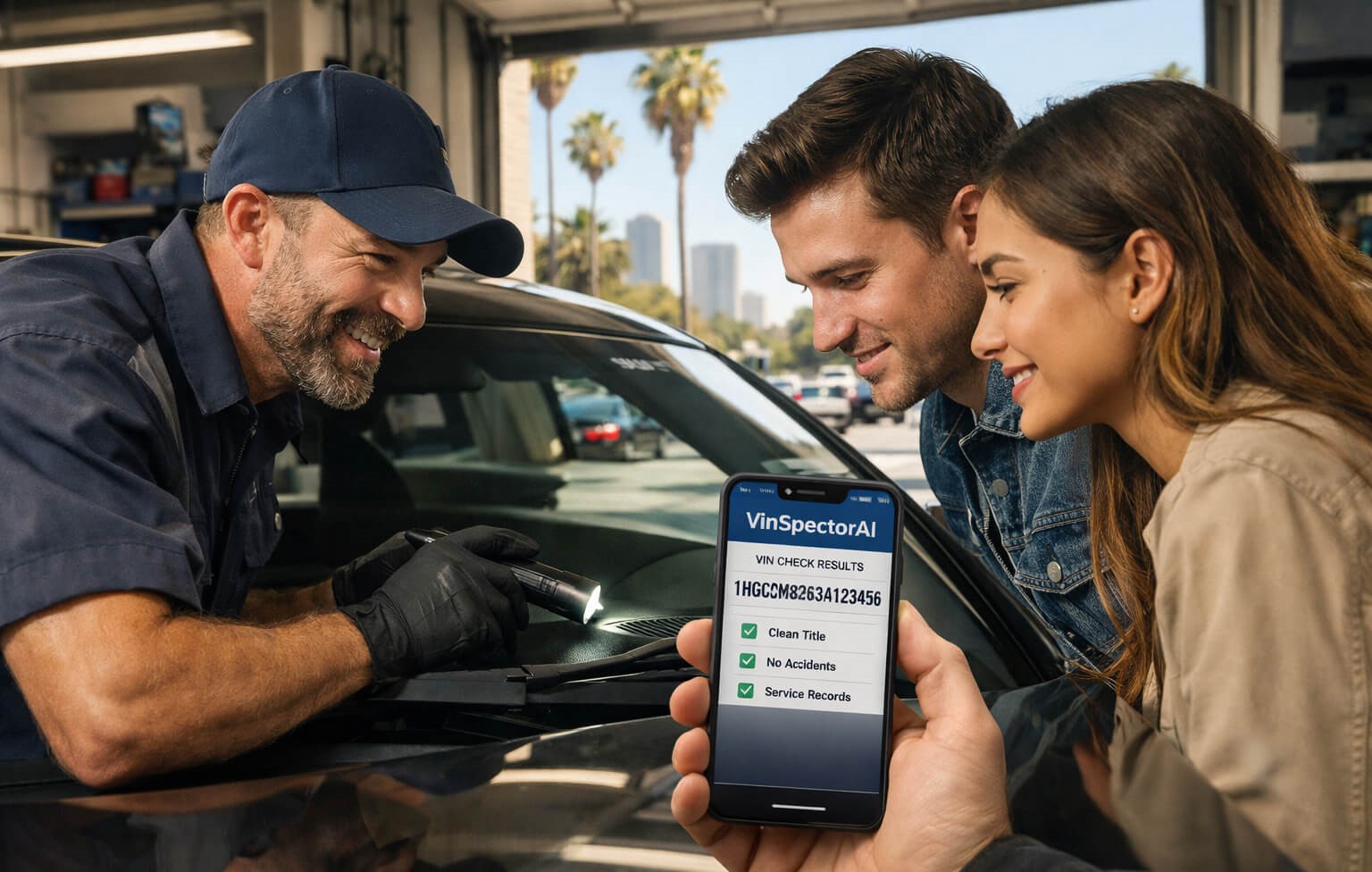
Free VIN number check California 2026: Use VinSpectorAI.com for instant AI-powered insights + full CA report ($12.95) covering wildfires, earthquakes, smog & more.

Simple tips for buying a used car. Learn how to check VIN, inspect the car, and avoid common mistakes for a safe and affordable purchase | VinspectorAI
